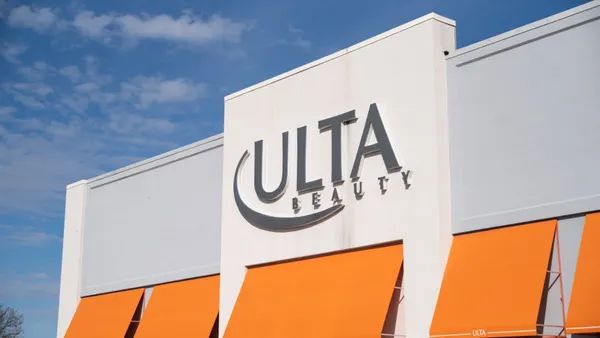Dive Brief:
-
Lulu's is joining the hoards of retailers going public this year. The online fast-fashion company, also known as Lulu's Fashion Lounge Holdings, this week announced that it has filed a Form S-1 registration statement with the U.S. Securities and Exchange Commission.
-
The number of shares to be offered and the price range for the proposed offering have not yet been determined, per a Lulu's press release.
-
Lulu's, which plans to list on the Nasdaq Global Market under the ticker "LVLU," was expected to be in the black in its most recent quarter ended Oct. 3, with net income of $3.3 million, up substantially from $377,000 in net income in the year-ago period, per the S-1. But the e-retailer ended its last two fiscal years in the red, with net losses of $469,000 in 2019 and $19.3 million in 2020.
Dive Insight:
Some may think that fast fashion is under intense pressure, in part due to younger consumers' concerns about the environment and labor practices. Analysts at both UBS and Moody's earlier this year warned that fast fashion companies will lose customers as sustainability and transparency grow in importance, and as resale and other apparel segments take advantage of the changing market dynamics.
But companies like Lulu's and Shein might beg to differ, and, in fact, Lulu's pretty much does in its prospectus. The e-retailer posits that it's brick-and-mortar apparel retail with the dimming prospects, due to "a prolonged and unattractive merchandising and buying cycle," the wholesale markup and growing online sales, especially from younger shoppers.
"Traditional brick-and-mortar apparel brand and retail models are increasingly under pressure," per the S-1. "From 2016 to 2019, we believe online penetration in the U.S. apparel industry increased from 17% to 25%, and this category shift is expected to continue with online penetration reaching 38% by the end of this year and 49% by 2025. Offline retail models have generally failed to keep up with changing consumer preferences and are burdened by vast, inflexible physical store footprints, inventory management challenges, demand seasonality and a highly promotional environment as competitors seek to capture any sales available to cover high fixed costs."
Lulu's said it actually launched in 1996 as a brick-and-mortar boutique, "but in the midst of rising consumer adoption of e-commerce and growing influence of social media, we shifted to an online-only model in order to reach our target customer where she prefers to engage." The brand claims to be one of the first "to leverage the power of bloggers and influencers to drive customer engagement," watching revenues and its customer base grow to a national scale all the while.
The company in the filing also boasted of its "efficient product development," customer service and data-driven supply chain and marketing.















